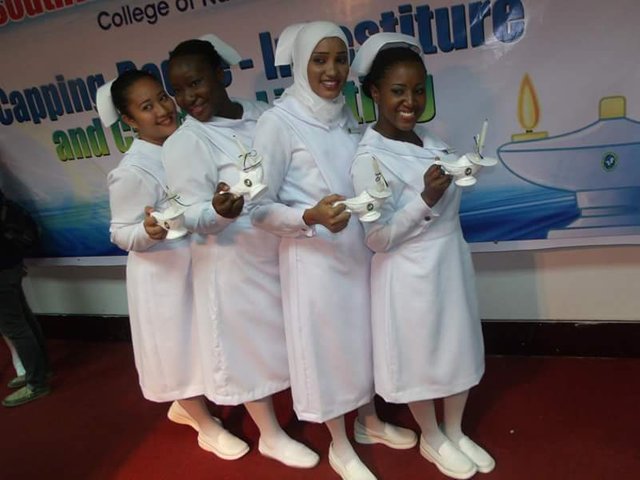Life of a Foreign student in the Philippines#1: Language barrier, a terrifying Labour room experience,
The beauty of steemit:
when one searches for content in any search engine and your article pops up. This platform encourages people to write quality content that is useful information. I dont know about you but for me, this platform is way beyond the 7 days pay out. And i therefore will do much as i can to put my self out there.. . a.k.a "Brand my self"
I was excited when i googled something related to an article i wrote here and it showed up on the top 5 results. You should have seen me do the happy dance. Now imagine the whole of google searches filled with results from steemit articles? Let us surpass- google!
Being a foreign student in the philippines has its ups and downs, how your entire experience goes will entirely depend on your perspective.
I will be sharing my journey as a foreign student in cebu, for the benefit of those starting off and consider coming to the philippines to study in future
Its quite a massive topic so i will break it into segments., and discuss bits by bits within time .
Language Barrier:
Its unfortunate that by the time i enrolled in school, November 2010 in Southwestern university, there was no special course for foreign students to learn the local dialect.
Probably because we were not as many foreign students then as there are now.
So learning Bisaya for me had to entirely be from my own effort, and for some reason, that part of my brain that's meant to learn and process new dialect had just refused to function for the past 15 years.. And was very active in years before than that.
As a Nursing student, this made it practically hard for me to deal with my patients. I feel i would definitely have been able to render better care, had i been fluent in the dialect, or even half as good.

I am not sure if i am ready to share this incidence here , as it is a very sensitive but it is a very perfect scenario to explain the importance of foreign students to learn the local dialect, especially to medical students who are required to engage with their patients fully in order to render best care best way they can.
Way into my 3rd year in School of Nursing, for my clinical rotation, i and my group mates were assigned in the delivery room at Vicente Sotto Medical centre.
It is a public Hospital and For those who have had the pleasure to visit or work in this hospital know how exhaustingly busy it is. And for the delivery room on a good day, a baby is popped out every 15 minutes, or less, and this was one of those days. The labour room was full, with atleast 2 women per bed laying side ways to share and fit in the small space ,while a bunch of nurses, midwives, students nurses and doctors are around the clock monitoring.
The delivery room was full of women lying on their backs, with their feet up in stirrups, in height of labour pain trying to push their babies out, as the the medical personell ran up and down in preps for the incoming new born's, . others where getting "muscle toned" with pushing and every body else in the Labour room screaming and urging them to UTONG! (Hold your breath and PUSH), utong maam, utong, utoooonngggg!
The recovery room (post delivery) was also full same as the admitting area. In fact the admitting area was fuller, there were women heavily pregnant lined up for hours waiting for their turn . i was assigned to monitor the ones in the waiting room , and get them set for labour and delivery. Because i was not fluent in Bisaya, i always made sure to have a classmate near by to quickly ask (saviour) if i did not understand or failed to communicate with my patient effectively, but on this day , there was no a "jesus" to "save"me as every body was busy and engaged.
Before i go further and into the most crucial part of the story, i need you to understand that, this is a public hospital, catering for mostly the less previledged, most of whom , had to travel from far a way cities to cebu to avail the delivery services for free or at a lesser cost.
Also most of these mothers have never had prenatal care,for various reasons that would range from illiteracy to lack of funds.
If you have read this far and are faint hearted, you may kindly stop here but if not, allow me proceed.
LOST IN TRANSLATION
As i was monitoring my heavily pregnant patients, counting the contractions and intervals, vitals and etc , this other who looked pale and somewhat uneasy, suddenly stood up and told me " Gawas" , i mean am sure she said some other words in Bisaya to back up her expression but the word that stood out to me was Gawas . confused and in dire need of a translator, i rushed to the nursing station and asked the nurse that was present there what gawas meant, in hope that from that one word i will figure out what the patient meant,.
The Nurse quickly told me it means go outside, tell her not to go out in her condition, its not allowed.
I got back to the patient and told her " ayaw to go outside", " dili pwede!", ayaw gawas dae" ,( do not go outside, its not allowed, do not go outside miss) she looked at me in a state of confusion and helplessness, and i still could not figure out why.
After,a few mins, she stood back up again mumbling same words and gawas is all i understood. This time i ran to my class mate Sam who was busy with his patient and quickly asked him , same question i had asked the Nurse earlier and he told me it means " outside" , i rushed back to the patient with confusion on why she was insisting to "Gawas" in her condition but before i could say P... There she was, legs apart, skirt pulled up, her offspring hanging by the placenta ,with her one arm slightly bent, managing to hold the baby,preventing it from reaching the ground.
Terrified by the sight but courageous i screamed for help,put on my gloves in a speed of light assisted the lady to lay on the bench (as it was too late to take to the delivery room) and was ready to do the needful.
The doctor arrived just on time,pulled rest of the placenta out, the lifeless baby, with blue and purple discoloration lay down there, it was a STILL BIRTH, the baby had died in her uterus for a long time, that was according to the doctor , am sure she could tell from assessing the baby, even the placenta was bluish.. A clear indication that there was no sign of life flowing through the mother to the baby for a long time.
I was tasked to wrap up the still born with its placenta and hand it over to the nurse for proper care.
Untill this point, i was shivering, beating my self to it that had i understood what the lady was saying from the beginning. turn of events would have been otherwise. Even if the baby had already died in the womb, probably way before she came to the hospital, i just could not help but feel terrible about my inability to cater for this patient on time.
I went back home thst day full of guilt, lay on my bed and sobbed. Called my mother and cried . i blamed her for not warning me in advance that nursing is this hard and emotionally wrecking, she calmed me down , and told me "i am sorry for what you experienced my baby, i did not tell you it was going to be easy either,.
From this experience, and many others that i hope to share on this platform later on. I will continue to urge all foreign medical and paramedical students to learn the local languages in their host country, that way, you will be able to render best care to your patients, interact better with your team and generally make life easier for your self.

Thanks for reading,
Untill next time!
Xoxo
Maggie
@surpassinggoogle has been and continues to be wonderful person.
please support him as a witness by voting him athttps://steemit.com/~witnesses and type in "steemgigs" at the first search box.
If you want to give him witness voting decisions on your behalf, visit https://steemit.com/~witnessesagain and type in "surpassinggoogle" in the second box as a proxy.
Thanks for sharing @purpletanzanite
I know you can relate. Thank u for reading.
I know right? I can relate the struggle is real, good old days, good memories.
As in..thank Goodness that phase is has passed.
Yeah I commend all the students out there who brave it out and venture to foreign lands to study, especially when there is a language barrier. @purpletanzanite This must have been the hardest learning curb for you.
It sure was, i wanted to quit after that. But was too far into the program already,
The language barrier is really a problem 😥 and you know like in class when bisaya takes the period, i feel bad. They even had to tell me to take Spanish in place of bisaya, dont know why...
Nice piece Mag!
Really? In the long run though i feel Spanish will be more useful outside the Philippines.
Yea
hehe.
i have been wanting to write this
i can relate
its really disheartening when i got discriminated at.
though most of the time i will shout "Anu"
Lol.
nice write up
keep it up
What an experience!! I think I would have just stood there frozen, then again there is a reason I'm not a nurse!
Hey @david-tales, in am pretty sure i froze for a split second. Lol.
hello @purpletanzanite.. I hope you could learn Cebuano so it wouldn't be hard for you to deal with patients here in the Philippines. Great post.. Steem on
Thank God i graduated already. But really urge the new ones to learn